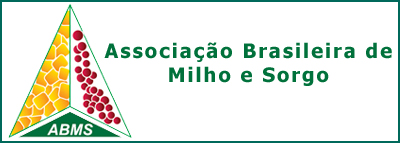EFFECT OF EXTRUSION ON ESSENTIAL AMINO ACIDS PROFILE AND COLOR OF WHOLE-GRAIN FLOURS OF QUALITY PROTEIN MAIZE (QPM) AND NORMAL MAIZE CULTIVARS
DOI:
https://doi.org/10.18512/1980-6477/rbms.v3n01p%25pKeywords:
milho, cor.Abstract
Whole-grain flours of Quality Protein Maize (QPM) and normal maize were extruded under controlled conditions in order to evaluate the effect of extrusion on the essential amino acids profile and color of the raw material used in the production of maize based extrudates. Flours were conditioned to 150g/kg moisture and processed in a single screw extruder at a screw compression ratio of 3:1, screw speed of 80 rpm, and die head temperature of 1300C, using two different die nozzle diameters (3 and 5 mm). Extrusion caused a diminishment in the contents of the essential amino acids isoleucine, leucine, lysine, threonine and valine when compared to their original flours (P< 0.05). But, the contents of histidine, methionine, phenylalanine and tryptophan were not different for flours and extrudates of the same source (P> 0.05).QPM samples, either raw or extruded, were significantly higher in lysine, methionine and tryptophan compared to samples of normal maize (P< 0.05). Extrudates produced with yellow QPM flours were lighter than their correspondent raw material (P< 0.05) , different from that of yellow normal maize. This trend was also observed for redness (a values) in extrudates. On the other hand, white and yellow extrudates presented higher b values (yellowness) than their correspond raw flour. Despite the adverse effect of extrusion in the amino acid retention, the use of QPM flours in replacement of normal maize flours can provide maize extrudates with superior protein quality.
Downloads
Published
How to Cite
Issue
Section
License
Authors retain copyright and grant the journal right of first publication with the work simultaneously licensed under the Creative Commons Attribution License that allows the sharing of work and recognition of the work of authorship and initial publication in this journal.
Authors are able to take on additional contracts separately for non-exclusive distribution of the version of the paper published in this journal (eg, in an institutional repository or publish as a book), with acknowledgment of its initial publication in this journal.
Authors are permitted and encouraged to post their work online (eg, in institutional repositories or on their website) at any point before or during the editorial process, as this may leadto productive exchanges, as well as increase the impact and citation of published work.



